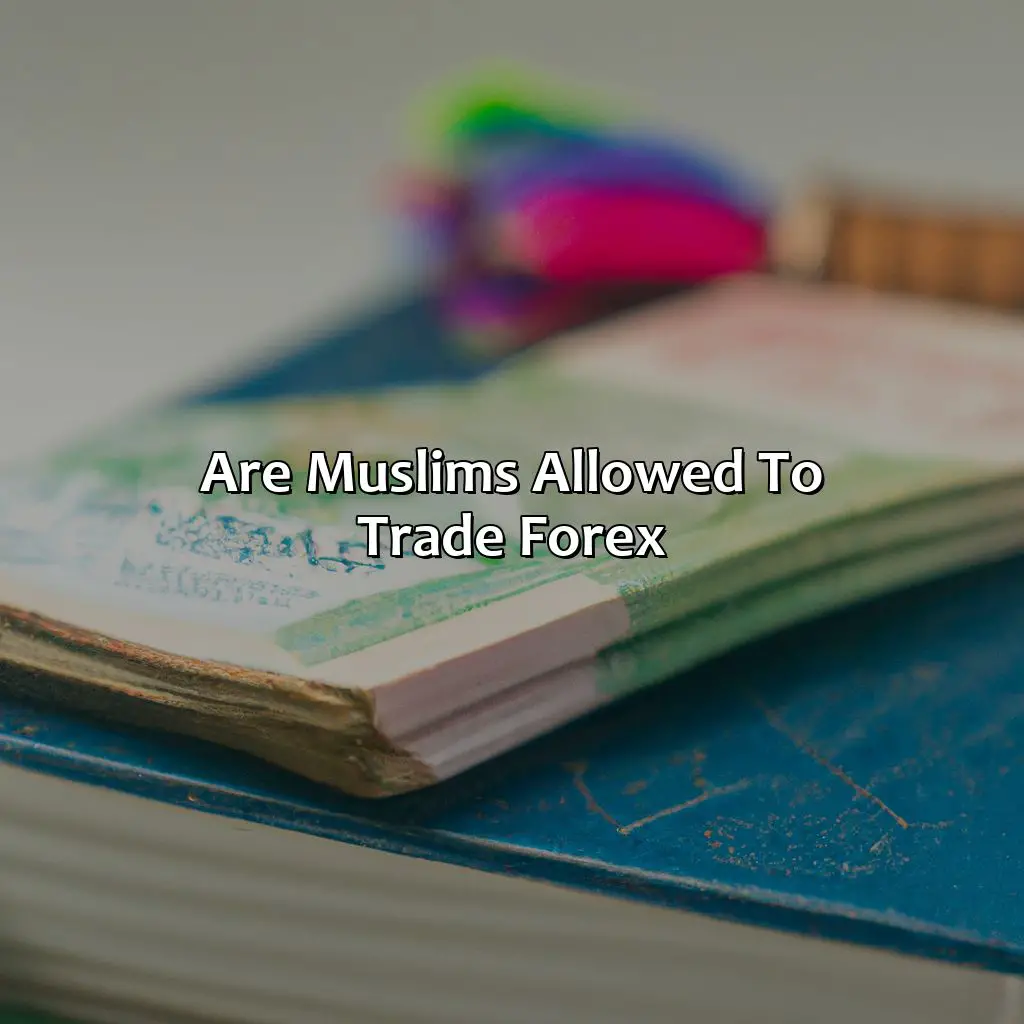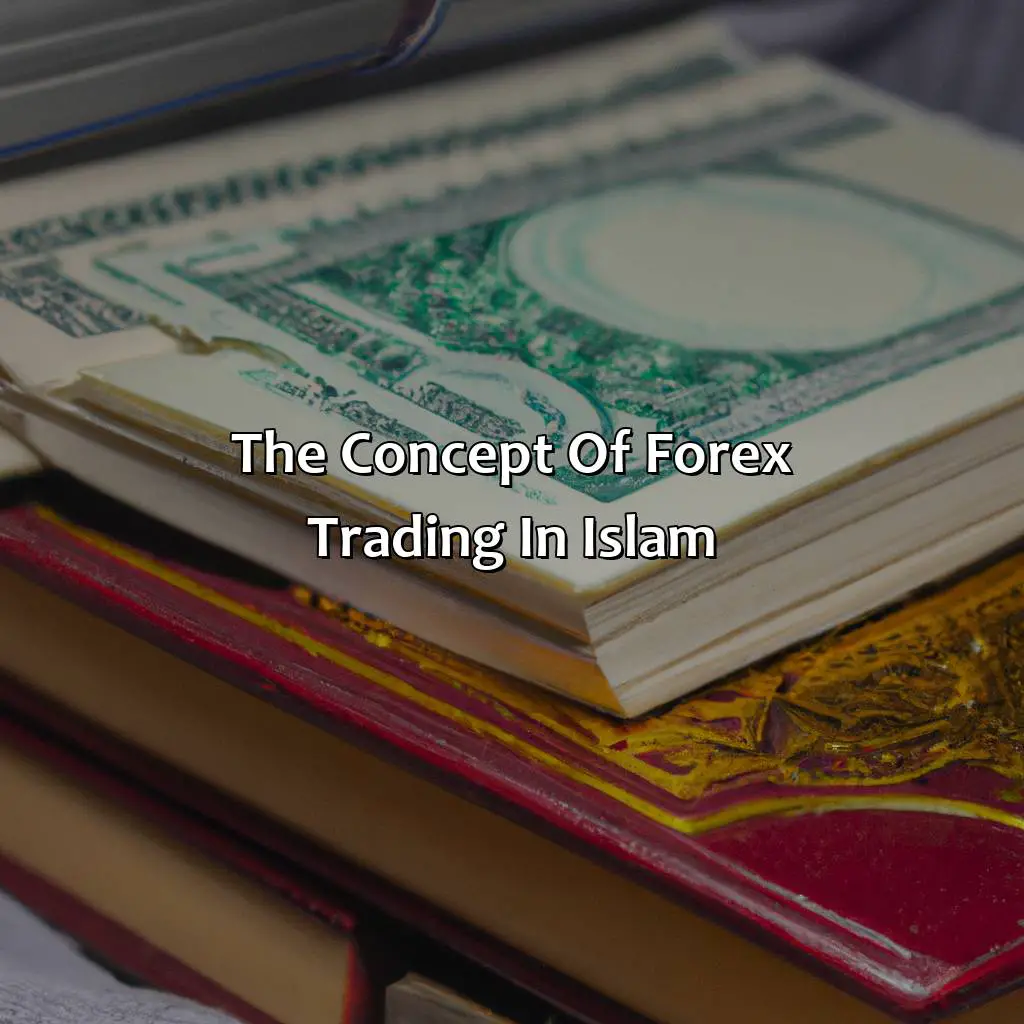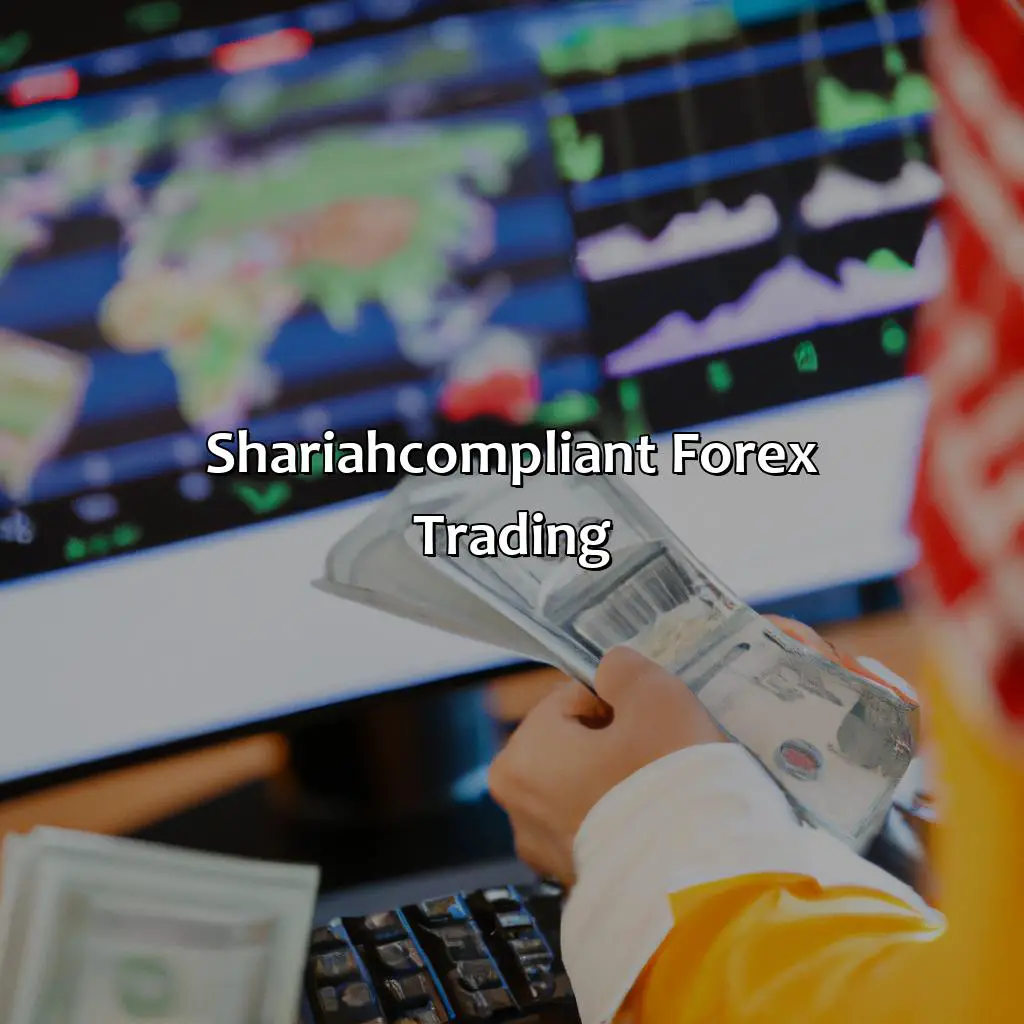
Key Takeaway:
- Islamic finance principles prohibit the charging or earning of interest, known as Riba, which poses a challenge for Forex trading. However, Shariah-compliant Forex trading is possible by using profit-sharing arrangements rather than interest-based transactions.
- Forex trading involves speculation, which is not explicitly forbidden in Islam, but should be done in moderation and with proper risk management to avoid gambling or irresponsible behavior.
- Islamic Forex trading accounts and Muslim-friendly Forex brokers are available, but it is important to do research and use screening processes to ensure compliance with Islamic finance principles and ethical business practices.
- Alternatively, Muslims can consider investing in Islamic funds or engaging in currency exchange for personal needs as a Halal alternative to pure Forex trading.
- Islamic scholars have mixed opinions on Forex trading for Muslims, but generally agree that it is permissible as long as it adheres to Islamic finance principles and avoids speculative or unethical behavior.
Understanding Islamic Finance

Photo Credits: forexbrokerreport.com by Edward White
Islamic finance is guided by Shariah law and adheres to religious principles. This includes the prohibition of charging interest and engaging in unethical practices. To comply with these guidelines, Islamic financial products and instruments have been developed, which are considered halal. These products are based on profit and loss sharing between the parties involved. Islamic investments are gaining popularity and becoming a preferable choice for many Muslims.
When it comes to forex trading, it is important to ensure that it is conducted ethically and in line with Islamic financial ethics. Forex trading can be permissible if it adheres to the principles of Islamic finance. This means that the trading must be free from any interest-based transactions and uncertainties. It is also important that the trading is conducted in a transparent and ethical manner.
One unique detail about Islamic finance is that it promotes social responsibility. This can be seen in the use of funds raised from Islamic financial products, which are often used for socially responsible purposes such as providing education or healthcare.
Pro tip: It is important to conduct thorough research and seek expert advice when engaging in Islamic finance and investments.
The concept of Forex Trading in Islam

Photo Credits: forexbrokerreport.com by Nicholas Hall
To comprehend how Forex trading associates with Islamic finance and respects Shariah law, one must investigate the idea of Forex trading in Islam. As a major principle of Islamic finance, the restriction of interest (riba) is integral. This makes it hard for Muslim traders to manage the dangers associated with currency trading. Speculation also plays a part in Forex trading, making additional difficulties for Muslim traders looking for halal investments.
The prohibition of Interest in Islam
According to the tenets of Islamic Finance, interest (riba) is considered haram or prohibited. It refers to a predetermined amount of money that must be paid back on a loan. The reason for such prohibition is to encourage ethical behaviour in commerce and avoid exploitation of the poor by the rich.
Forex Trading, which involves trading currencies in the global market, is considered haram under Shariah Law due to its association with excessive speculation and gambling, which is prohibited in Islam. This means that trading currencies for profit using interest-based loans or conventional banking products is forbidden.
However, Islamic scholars have found a way to make Forex Trading halal or permissible under certain conditions. To do so, they require traders to conduct trades in conformity with the principles of Islamic Finance. This includes avoiding transactions with conventional financial institutions and only transacting in currencies backed by physical assets.
Moreover, there are some alternatives available for Muslims who want to invest their money without compromising their religious beliefs. They can invest in Shariah-compliant funds managed by certified fund managers or exchange currencies for personal uses without engaging in speculative behaviour.
As Muslims worldwide continue to seek opportunities for wealth creation while following their faith’s teachings, it is vital that they understand the principles of Islamic Finance and Shariah Law before engaging in any sort of investment activity. Not exploring these options may result in missed opportunities and financial loss due to non-compliance with religious guidelines.
Speculation in Forex Trading: A game of chance or a risky business for Islamic Finance principles?
The role of speculation in Forex Trading
Forex Trading involves buying and selling currencies in anticipation of profiting from price movements, which is often driven by speculation. This speculation can be seen as a form of gambling, which violates the principles of Islamic Finance.
The issue with speculation in Forex Trading lies in the uncertainty of future outcomes, which goes against the principle of certainty and avoidance of gharar (uncertainty or risk) in Islamic Finance. In addition, excessive speculation fuels the volatility in markets and contributes to market instability.
Shariah-compliant Forex Trading aims to avoid the use of speculative techniques such as margin trading and short-selling that do not align with Islamic Finance principles. Instead, it focuses on an asset-backed approach where transactions must have underlying assets defined, and profits earned must come from these assets’ real economic activity.
It is important for Muslims considering Forex Trading to ensure they engage only in Halal activities that align with their faith’s values. Although there are some Shariah-compliant Forex brokers available, Muslim investors may choose other alternatives such as investing in Islamic Funds or exchanging currencies for personal needs.
Make profits the halal way with Shariah-compliant Forex Trading through ethical investment and profit sharing practices with your Islamic Trading Account and trusted Forex Broker.
Shariah-compliant Forex Trading

Photo Credits: forexbrokerreport.com by Douglas Thompson
Engage in Shariah-compliant Forex Trading? You must make sure that your investments are in line with Islamic Finance principles. In this section, you’ll discover how Islamic Finance principles are compatible with Forex Trading. Also, you’ll learn about the Halal Forex Trading screening process. This includes Islamic Trading Rules such as leverage, margin trading, Islamic Margin Trading, and Islamic Forex Account.
Compatibility of Islamic Finance principles with Forex Trading
Islamic finance principles can be compatible with Forex Trading. Shariah-compliant Forex Trading ensures that ethical and religious guidelines are followed while trading currencies. The Islamic financial system prohibits Riba, or interest-based transactions, in forex trading. However, halal forex trading allows for speculation within certain parameters to avoid the element of gambling or uncertainty.
Halal Forex screening processes involve ensuring that companies comply with Islamic principles. Also, there is a focus on investing in companies involved in industries and businesses approved by Shariah. In contrast, Halal Forex alternatives for Muslims include investing in ethical funds or currency exchange for personal needs.
According to Islamic scholars, it is permissible for Muslims to participate in Halal Forex Trading as long as investment meets the principles of Islam and no interest is charged or received during trade transactions. They emphasize learning and adhering to Islamic guidance while practicing Islam-friendly investments.
A fact by Al Azhar University stated that many Islamic banks around the world allow forex trading that complies with Shariah laws to encourage halal investments among their clients.
When it comes to Halal Forex Trading, the screening process is crucial to ensure adherence to Islamic finance principles and avoid any prohibited activities such as leverage and margin trading.
Screening process for Halal Forex Trading
Islamic Trading Rules for Forex
Islamic finance principles are compatible with forex trading, and halal forex trading is possible. However, Islamic trading rules relating to interest (riba) and speculation need to be considered. In Islamic margin trading, shariah-compliant leverage is used to avoid riba.
To screen for halal forex trading, the following factors should be considered:
- the broker’s compliance with Islamic regulations,
- their trading accounts’ compliance,
- available instruments and their underlying assets’ legitimacy.
Pro Tip: Always do thorough research and consult an Islamic scholar before engaging in any forex trading activities.
Unlock the door to ethical investing with halal alternatives, paving the way for Muslim investors to invest with a clear conscience.
Halal Forex Trading alternatives for Muslims

Photo Credits: forexbrokerreport.com by Bobby Lee
Muslims looking for halal forex trading alternatives have options. Investing in Islamic funds and using currency exchange for personal needs are two such solutions. Islamic funds allow equity investments that follow Shariah law. Whereas, currency exchange is a safe way to transact foreign exchange for travel or business.
Investing in Islamic Funds
Islamic funds are financial instruments that cater to Muslim investors seeking Halal investment opportunities. These funds invest in Shariah-compliant companies and industries, such as halal food, renewable energy, and Islamic banking.
Investing in Islamic funds offer Muslims an opportunity to earn a return on their investments while fully complying with the Sharia law. Unlike conventional equity investments where interest-bearing loans are taken at high-interest rates, Islamic funds ensure that all financial transactions conducted comply with specified Shariah principles.
Such a strategy is known as Islamic asset management or Islamic money management, where money is invested in line with the Sharia law and structured in accordance with its ethical code. Islamic banking principles also prohibit any gambling or speculation within these investments.
To pursue such goals, investment managers screen potential investments using a strict list of criteria to ensure they conform to the guidelines of Shariah law compliance. This approach focuses solely on companies that meet predetermined ethical standards without causing harm to society or engaging in any interest-based activities prohibited by Islam.
For those cautious about investing in Forex due to its speculative nature, investing in Halal-based mutual funds can be an excellent alternative way of generating long-term wealth creation while keeping within the principles of Islam.
When it comes to currency exchange for personal needs, it’s good to know your exchange rates and even better to know your personal needs.
Currency exchange for personal needs
As per Islamic finance principles, currency exchange for personal needs is allowed under certain conditions. Muslims can exchange their local currency for foreign currency as long as it is for legitimate reasons, such as travelling, studying abroad or paying off debts.
However, one should be cautious of the exchange rates and avoid transactions with excessive fees or hidden charges. The transaction must be transparent and both parties should agree on the terms of the exchange.
In addition to personal needs, foreign exchange can also be used for business purposes like importing/exporting goods or services. It is important to carry out these transactions in a halal manner and ensure that there is no interest (riba) involved.
A true story of a Muslim businessman planning to travel overseas for business purposes required him to convert his local currency to the foreign currency. While he was about to trade with a regular forex broker, he realised that it would involve riba (interest). He then researched and found a halal forex broker who complied with Islamic finance principles and facilitated his exchange without any interest.
Some Facts About “Are Muslims Allowed to Trade Forex?”:
- ✅ Forex trading is permissible for Muslims as long as the trading account complies with Shariah law. (Source: Trading Education)
- ✅ Islamic Forex accounts operate without interest, swap, or rollover fees. (Source: DailyFX)
- ✅ Islamic Forex accounts require traders to buy and sell currencies at the same time, ensuring that no currency is held overnight for speculative purposes. (Source: IslamicFinanceGuru)
- ✅ Islamic Forex accounts may have limitations on leverage and require traders to close positions within a set timeframe. (Source: FX Empire)
- ✅ To ensure compliance with Shariah law, it is recommended for Muslims to consult with an Islamic finance expert before opening a Forex trading account. (Source: The Balance)
FAQs about Are Muslims Allowed To Trade Forex?
Are Muslims allowed to trade forex?
Yes, Muslims are allowed to trade forex as long as it is in accordance with Islamic principles.
What does the Quran say about foreign exchange trading?
The Quran does not explicitly address foreign exchange trading, but it does prohibit usury and interest payments. Therefore, forex trading must be conducted in a way that does not involve any interest payments or usury.
Is speculative trading considered haram in Islam?
Speculative trading is not considered haram in Islam as long as it is not excessive risk-taking. In forex trading, Muslims must avoid excessive risk-taking to abide by Islamic principles.
What is the currency risk in forex trading?
Currency risk refers to the risk that currency values will fluctuate, resulting in a loss for the investor. Forex trading involves significant currency risk, and Muslims must engage in forex trading in a way that minimizes this risk while remaining in accordance with Islamic principles.
What is Admiral Markets?
Admiral Markets is a leading online trading platform that provides a range of trading instruments, including forex, to investors around the world.


